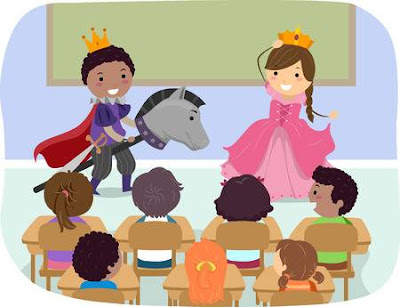Speaking is perhaps the most demanding skill
for the teacher to teach. In this way, children are able to express emotions,
communicate intentions and reactions. So, in English is the same way, but there
are limitations because of their lack of actual language. We should remember
that oral skills of a young learner are much different than those of the young
or of children aged seven and over, so we should keep this in mind.
When we are teaching a foreign language,
sometimes we cannot understand what children want to say, because it is not
their native language. Children will be often naturally insert their native
language when they cannot find words in English. I think, that it is good
because they try to do it, participate in the discourse, and is naturally that they
have mistakes, obviously you should correct these mistakes because they are
learning a new language and all the knowledge is new for them.
When children start learning a foreign language,
-English- they need to be given language before they can out. At this initial stage
the activities will be under the control of the teacher. With the help of some tools
or ways, you can present new language orally, for example: through the pupils
asking for their abilities or what kind of things are her or his favorites.
Using puppets, a mascot, with them, you can create funny dialogues; using
drawings, silhouettes. You can choose the best way to provide oral skills to
the young learners.
We
should not forget use this ways at the same time with controlled practices,
learners should try to practice the new language as soon as they have heard it.
The sooner they can practice, the easier they can assimilate the new language
and practice pronunciation of these.
Activities
like these provide the basis for oral work, but do not always produce a “real”
language at once. Their purpose is to train pupils to use correct, simple,
useful language with a situation or context. Learners may have to repeat sentences,
be corrected and go through the same thing several times. In my point of view, is
not necessary to teach a lot of words that children may forget, may be a few,
but if you teach them well, they can easily understand; you will have gained
much more because they will hardly forget it.
Working
with dialogues is useful to bridge the gap between guide practice and freer
activities. Another way of present dialogues is through role plays.
In
conclusion, the use of activities that motivate learners' participation is good,
because in this form they can add new vocabulary and practice pronunciation and
is an easy way to create sentences. To provide oral skills to young learners is
very important.



No comments:
Post a Comment